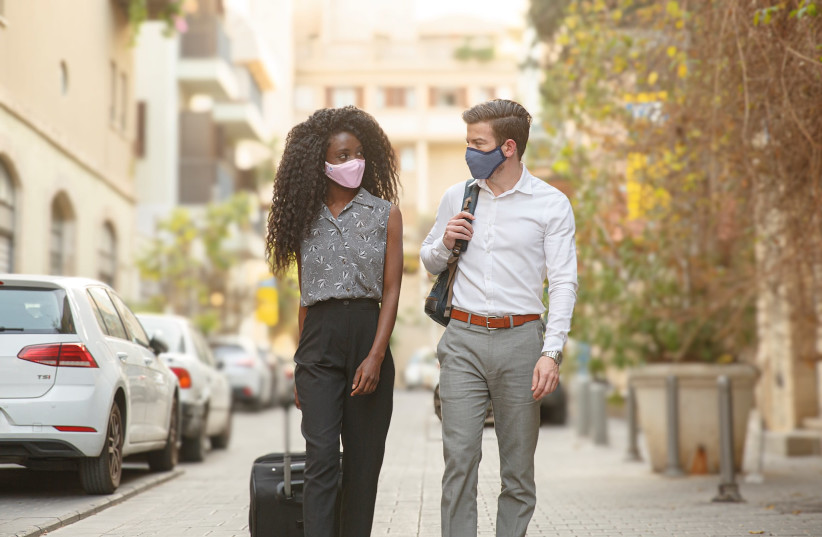While Israel and the world are focused on big pharma cures for COVID-19 and vaccines, an Israeli start-up founded by an entrepreneur from Nahariya has become the face of Israel’s first line of defense – literally.
Joshua “Shuki” Hershcovich, 66, and his company, Sonovia, have redefined the role of masks in the fight against COVID-19. The big difference is “transitioning masks from passive filtration rectangles to active protection shields,” Hershcovich told The Jerusalem Post.
The company only produced its first mask in the first months of 2020. Last year, the company had more than $9.5 million in sales to hundreds of thousands of clients in more than 180 countries.
See No. 36: Connecting Christians
See No. 38: Blackstone's Secret Weapon
See full list
Download full magazine
See 2020's list
And it likely saved a lot of lives, too.
Hershcovich said he was an entrepreneur from the age of 12, when he “found a way to innovate within the lawn-mowing market.” He spent years in the US, including several ventures as a leading denim merchandiser. But he told the Post that once he realized he was contributing to the damage caused by one of the leading pollutive industries in the world – the textile industry – he decided to shift gears. He envisioned a technology that would transform the textile industry, that would make it “green.”
In 2013, he founded Sonovia with the aim of researching, developing and ultimately commercializing textiles based on a lab-scale sonochemical process that was developed at Bar-Ilan University.

“The technology is based upon a physical phenomenon called cavitation,” explained Jason Migdal, head of the company’s business development team. “Sound waves are used to physically infuse desired chemicals onto the structure area of materials, enhancing them with clinically proven antiviral and antibacterial properties.”
At the start of the COVID crisis, the company had not completed the commercialization process, but it did have enough stored fabric in its R&D line to produce between 5,000 and 10,000 masks, which could be made immediately. It transferred the fabric from where it was being stored abroad to Israel, found a local company to manufacture the first masks and sent them to China.
When the pandemic hit Israel, it donated around 120,000 more masks to Israeli hospitals, medical professionals and coronavirus patients.
As its antiviral, antibacterial and antifungal fabric underwent more and more clinical testing, it was found to neutralize viruses, bacteria and fungi with over 99% proven efficacy – including against the Delta variant.
Tens of thousands of masks were donated to first-responders, schools and populations in need. In addition, hundreds of thousands of masks were sold worldwide.
“We moved like a commando unit,” Hershcovich recalled. “It was just a few of us; today there are more than 50 people in the company and we have our own place in Acre. Then, we just moved fast – very fast.”
At the end of last year, Sonovia was awarded with the honorable start-up competition prize from The Genesis Prize Foundation. It has also received numerous grants and support from the European Union and other leading global improvement initiatives since its inception.
It has struck deals to develop a clothing line with Delta and is working to implement its technology in other sectors, including the airline and automotive industries.
And it strives to make a difference in Israel, collaborating with organizations like Masa Israel Journey to provide internships to young Jews considering making Aliyah. It chose to locate its sewing plant in the mixed city of Acre, near Hershcovich’s hometown, to help provide employment opportunities for Arabic women in the city.
“I am so happy that I can tell you that I want to make the world better, help people to live better lives – and save a lot of lives,” Hershcovich said. “That is my vision.”
